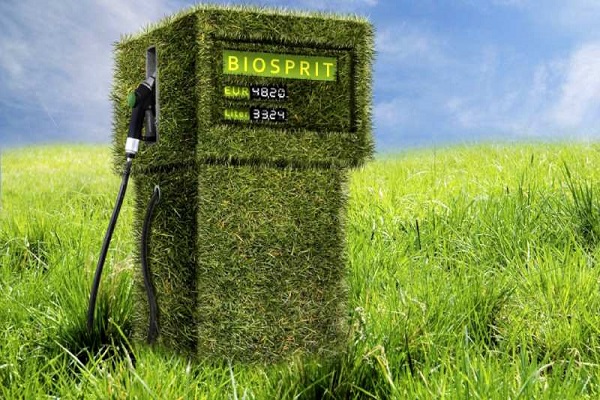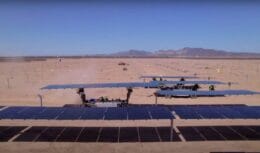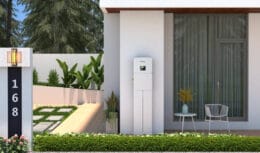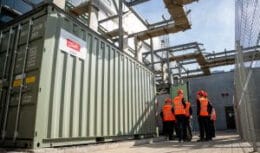
The biggest industry event in the country, promoted by the Brazilian Association of Regulatory Agencies (ABAR) and taking place between November 10th and 12th, in Foz do Iguaçu (PR), will address issues such as the new gas law and new markets for the sector and the use of biomethane
For the first time since the beginning of the pandemic, regulatory agencies and state departments from across the country, in addition to representatives from CADE and the British Energy Program for Brazil (BEP), will face-to-face debate on the impact of new legislation and changes on the energy market. oil and gas in Brazil. The venue for the meeting will be the XII Brazilian Regulation Congress and the 6th. Expo ABAR, promoted by ABAR (Brazilian Association of Regulatory Agencies) and considered the most important meeting of the regulation sector in the country. The meeting should bring together around 1 people in Foz do Iguaçu (PR), between November 10th and 12th, following strict health safety and distancing protocols.
Other Interesting News
One of the most sensitive issues in this sector is the New Gas Law (law 13.134/2021), sanctioned in April of this year by President Jair Bolsonaro and which proposes a review of the regulatory framework for the sector established by the Federal Constitution of 1988. The concern is that the new law goes beyond the exclusive constitutional competence of these entities (art.25, §2, CRFB/1988) to regulate, supervise and control “local piped gas services”, which also includes the Biomethane.
For members of State Secretariats and Regulatory Agencies, the new legislation poses a potential risk of legal, operational and regulatory uncertainty, which could bring economic and financial imbalance to concession contracts, especially in large supply contracts, if it does not respect constitutional provisions. “The main discussion is in relation to the competence to regulate the sale and definition of gas pipelines, which according to the law pass to the control of the national regulatory agency and no longer to the states. The measure was inspired by European experiences, but Brazil is a continental country, with very different characteristics. For 32 years, states have been monitoring sales to local consumers through public companies. Gas is very different from electricity”, compares Paula Campos, director of ABAR's Oil and Gas Technical Chamber.
Over the last twenty years, gas has been an energy alternative for sectors such as industry and power generation. electricity, but the evolution of the network in Brazil is uneven: while the transport gas pipeline infrastructure has expanded from 4 thousand km to 9,5 thousand km since 1999, the distribution gas pipelines have grown tenfold in this same period – from 3,8 thousand km in 1999 to 38,2 km in 2020.
Another theme highlighted at the event will be the opening of the natural gas market and what has advanced since Petrobras signed, in June 2019, a Term of Cessation of Anticompetitive Conduct (TCC) with the Administrative Council for Economic Defense (Cade). As a result, Petrobras sold its stake in this sector to private companies.
“If well applied, it will be a revolution for the market, as there will be changes in most states and an increase in the potential for competition in the product offer. In addition to possibilities of contesting the monopoly in all spheres, including transport”, comments Tiago de Ávila Acquaviva, executive secretary of the Chamber of Oil and Gas of ABAR. At the ABAR Congress, several states (such as Rio de Janeiro, São Paulo and Espírito Santo, among others) will share their experiences in renewing contracts already under the terms of the agreement.
Biomethane, the “caipira pre-salt”
In addition to regulatory and infrastructure issues, the Congress will have a special panel with the presentation of cases on the use of biomethane, a renewable energy source that is starting to be used in Brazil and that reduces production costs and, at the same time, negative impacts of waste in the environment. In the interior of São Paulo, biomethane is called “caipira pre-salt“, given the enormous production potential of biomethane that can be generated as a by-product of sugarcane mills. Biomethane can also be produced from solid waste from animals such as pigs.
In partnership with the British government program, ABAR is training representatives of all affiliated regulatory agencies, focusing on a regulatory guide for biomethane. In the northwest region of São Paulo, biomethane is being used as an energy source in a sustainable cities project. “It is a sustainable source, generated from an ethanol plant, and which is independent of dollar and oil fluctuations. We hope to present this project to other Brazilian states”, comments Paula Campos.
COMPLETE PROGRAM OF THE XII REGULATION CONGRESS
Over three days, the meeting will have an extensive program that includes the presentation of technical papers in the morning and panels, round tables and thematic debates in the afternoon, in segments such as: oil and gas, transport and logistics, energy, basic sanitation, resources water and health, legal and institutional aspects, governance and social control. In parallel, the 6th edition of Expo ABAR will also take place, a space for the institutional exhibition of the event's participants, which aims to exchange experiences and develop new projects.
In addition, the ABAR Congress will host two important international events in parallel: the FIAR (Forum Iberoamericano de Regulação), promoted by Aderasa (Asociación de Entes Reguladores de Agua Potable y Saneamiento de las Américas), on the 9th and 10th; and Ersan (Meeting of Regulatory Entities for Basic Sanitation Services and Water Resources in Ibero-American Countries and the Portuguese-Speaking Community), promoted by a group of organizations, including Ersara (Regulatory Entity for Water and Waste Services in Azores), on the 11th.
The XII Brazilian Congress of Regulation has institutional support from institutions such as Aesbe (Brazilian Association of State Sanitation Companies), CREA-PR (Regional Council of Engineering and Agronomy of Paraná), Corecon-PR (Regional Council of Economy of Paraná ), IEP (Institute of Engineering of Paraná) and Assemae (National Association of Municipal Sanitation Services), among others. Registration for the event can be made through the website https://congressoabar.com.br/.
SERVICE
- ABOUT: XII Brazilian Regulation Congress and 6th ABAR Expo – “The role of regulation and sustainable development in Brazil”
- WHEN: November 10, 11 and 12, 2021
- PLACE: Rafain Palace Hotel & Convention Center, Foz do Iguaçu/PR
- REGISTRATION: https://congressoabar.com.br/










